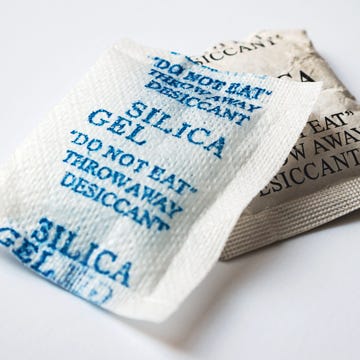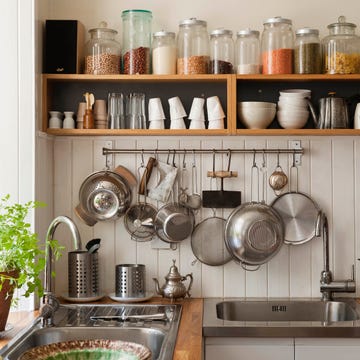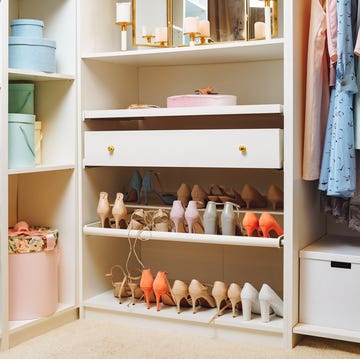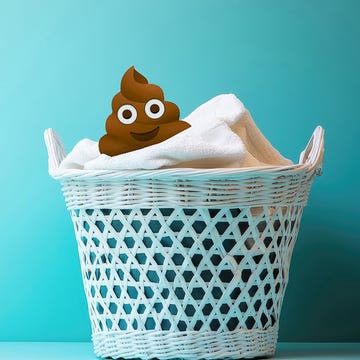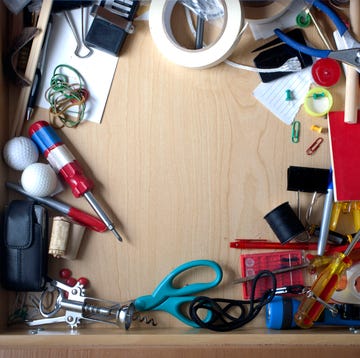No one wants to declutter in this heat. And can you blame them? The idea of sorting through a pile of ‘stuff’ while sweating profusely and breathing in years of dust seems more punishing than productive. But that doesn’t mean your home needs to stay full of clutter until things cool down.
In fact, we’ve found 7 things that are quick and easy to declutter, even when you’re too hot for words and you’ve got zero energy. Want to feel productive and make some space this summer? Try sorting through these clutter hotspots.
1. Out of date medicine
Medicine is one of the quickest and easiest of items to declutter; the reason being the decision is made for you. Medicine comes with an expiry date printed on the packaging, after which it’s not guaranteed to deliver the performance that it should. This could result in a potentially dangerous situation when you need the medicine most, so it’s essential that everything remains in date.
What to read next
Pull all the medicine out of your cabinet and set aside anything that’s expired. Even if you’ve lost the outer packaging, keep in mind the date will still be printed on the plastic blister packs within. For what’s expired, the packaging can be recycled while the medicine itself should be safely disposed of by your local pharmacy.
For those in date, categorise by type; e.g. paracetamol, ibuprofen, throat sweets etc, then stack according by date, so the oldest gets used first.
2. Duplicates
We’ve all got closet staples we wear regularly. It might be several white vests or a collection of black leggings. If you’re looking for a quick declutter-win, there’s usually some older pieces in the mix which we don’t wear nowadays; maybe some of the vests look more grey than white or the leggings show unsightly holes when worn. Some might just not fit anymore.
Declutter any duplicates you no longer wear. After washing, these can be donated to a charity shop or a clothes bank, or they can be recycled at a local recycling centre.
3. Holey socks
Most of us have one or two holey socks hidden in the sock drawer - it’s inevitable with regular use. Not only are these uncomfortable to wear, providing no barrier between your foot and the shoe, they don’t look great when you finally get home after a long day’s work. So find and remove any pairs which are damaged to save some space.
Now’s your chance to find any single socks too. Unless you don’t mind wearing mismatched socks, these are unlikely to be worn again. You can wash your unwanted socks and find a local recycling centre to accept them, or you can use them for a handy dust-grabber around your home. Stretch the sock over your hand and then reach between the slats on your blinds and give your lampshades a once-over.
4. Almost empty jars
Think back to your fridge; is there an almost-empty jam jar that’s been sitting in there for some months? Or perhaps there’s a half-finished Nutella jar which has receded to the back of your pantry? We’re all guilty of storing opened jars which we never get around to finishing. A few weeks pass or even a couple of months, and then we don’t really want to eat it anymore, so it sits and stares at us guiltily every time we open the fridge door.
Now’s your chance to clear out those unwanted condiments and preserves. What’s left can be added to your local food waste collection, if your council offers this. Or it might be suitable for the compost heap, but keep dairy items off the pile as this will attract pests. Sauces that contain oils can have the same issue and slow the composting process too. Glass jars can be recycled.
5. Plastic plant pots
Whenever we buy plants from the garden centre, or upgrade an indoor plant to a larger pot, we’re left with the old plastic containers. We reuse these as best we can, but they inevitably stack up, especially as they’re too small for most jobs.
If you’ve got an abundance of plastic plant pots, these are quick to collect and declutter. They can sometimes be recycled at home (check your local authority to confirm). But keep in mind that black plastic pots aren’t accepted and need to go in the household waste.
Or you can disinfect old pots by washing with warm, soapy water, followed by soaking in a solution of 1:9 bleach-to-water for 10 minutes before rinsing. Once disinfected, some garden centres will take back the plant pots, or you could offer them out to neighbours or even local allotment associations.
6. Car clutter
Car clutter always seems to thrive. Whether you’ve got parking tickets loitering in your cupholders or empty water bottles filling up your door pockets, cars are often littered with all sorts of things that annoy you whenever you open the door. It takes seconds to remove unwanted items and then you can give your car a makeover with a vacuum cleaner.
Recycle empty water bottles and parking tickets, if possible. Any unneeded receipts can be thrown away with your household waste. Avoid storing any sweets in your car during high temperatures; even in the glove compartment, they can still melt and make a mess!
7. Tote bags
Tote bags are a brilliant alternative to plastic, but with each one we buy, these too stack up until we’re left with a drawer stuffed with them. Only keep the tote bags that you need and use – have a few available for your weekly shop (perhaps keep these in your car) and keep one to hand for spontaneous purchases when you’re out and about.
The others can be washed according to the care label and then offered out to friends and family and charity shops. If it’s on its last legs, it can still be recycled at a local recycling centre.












